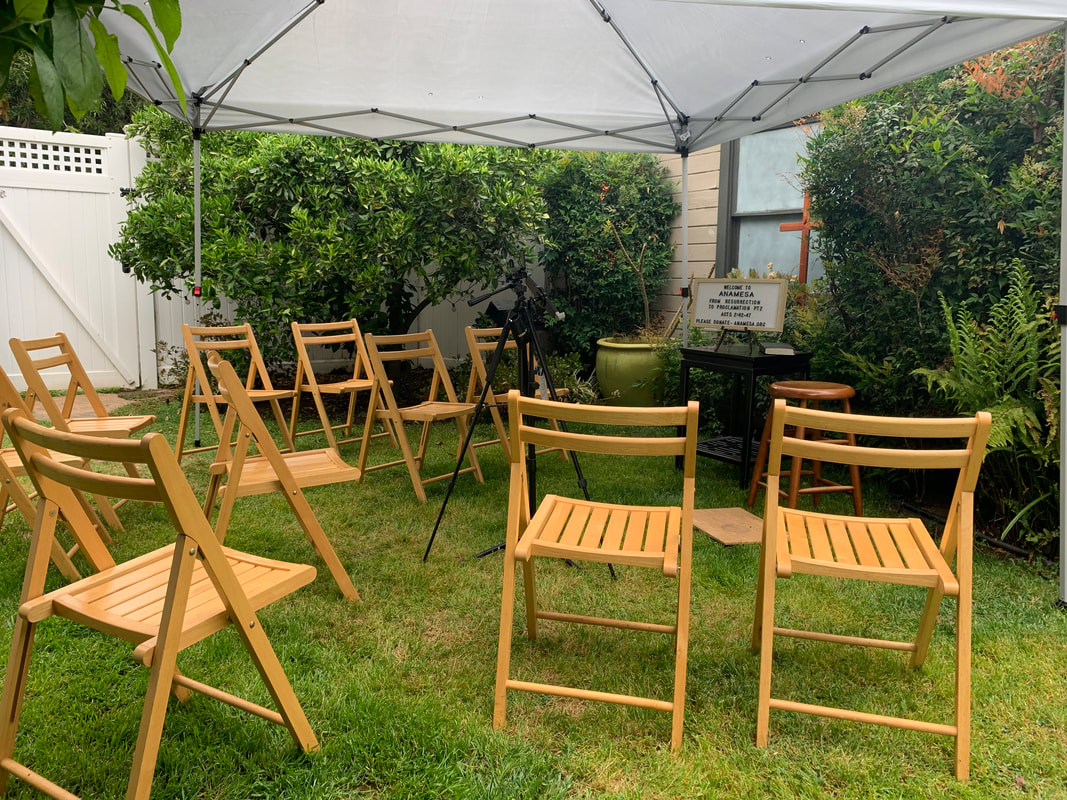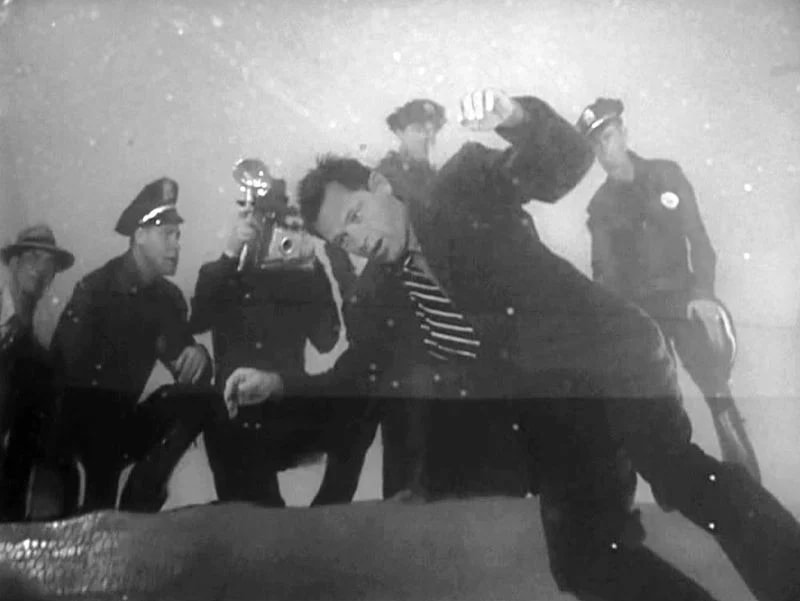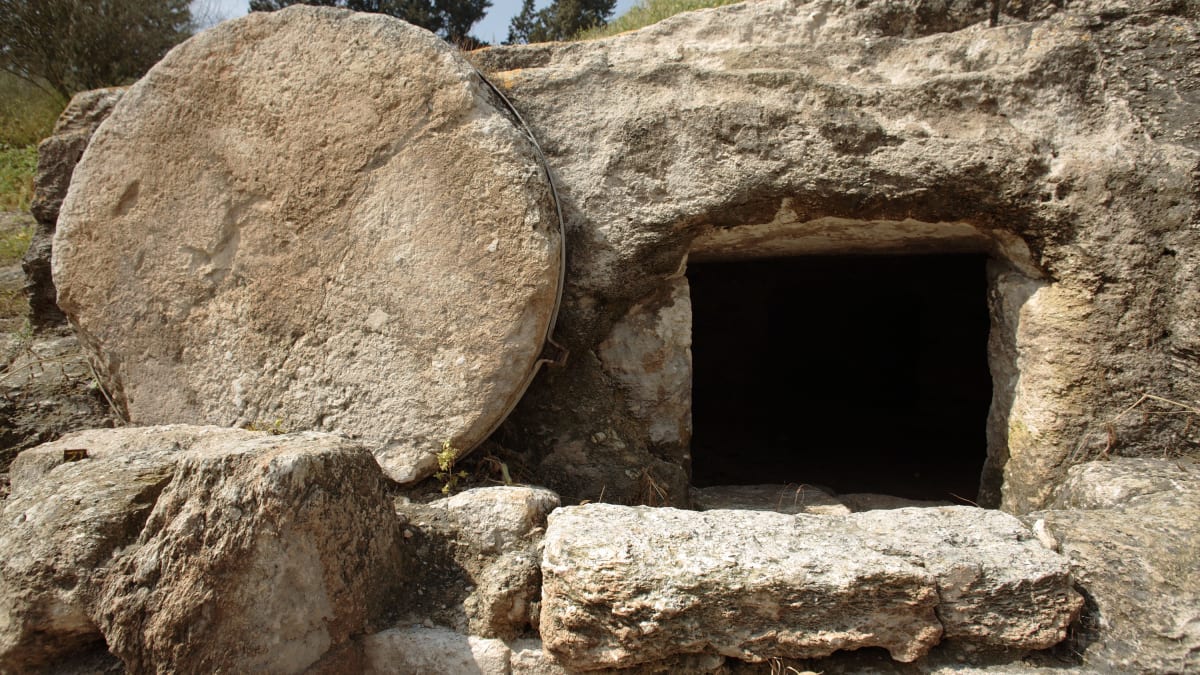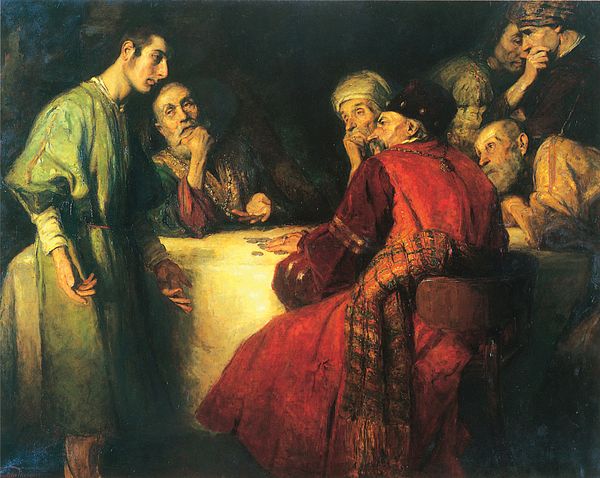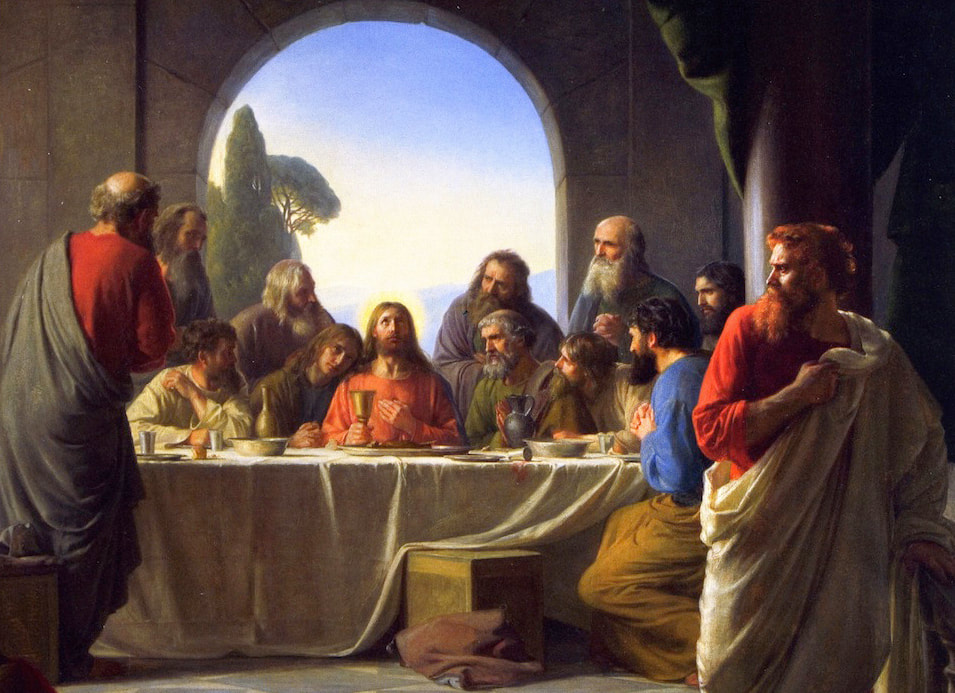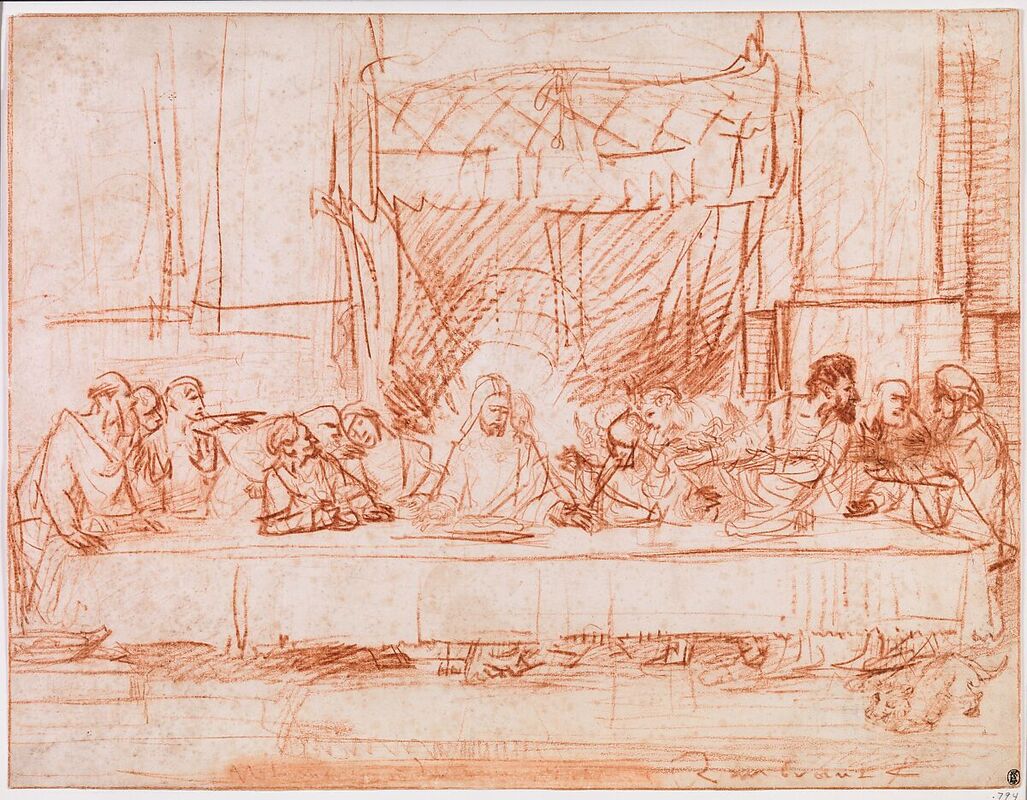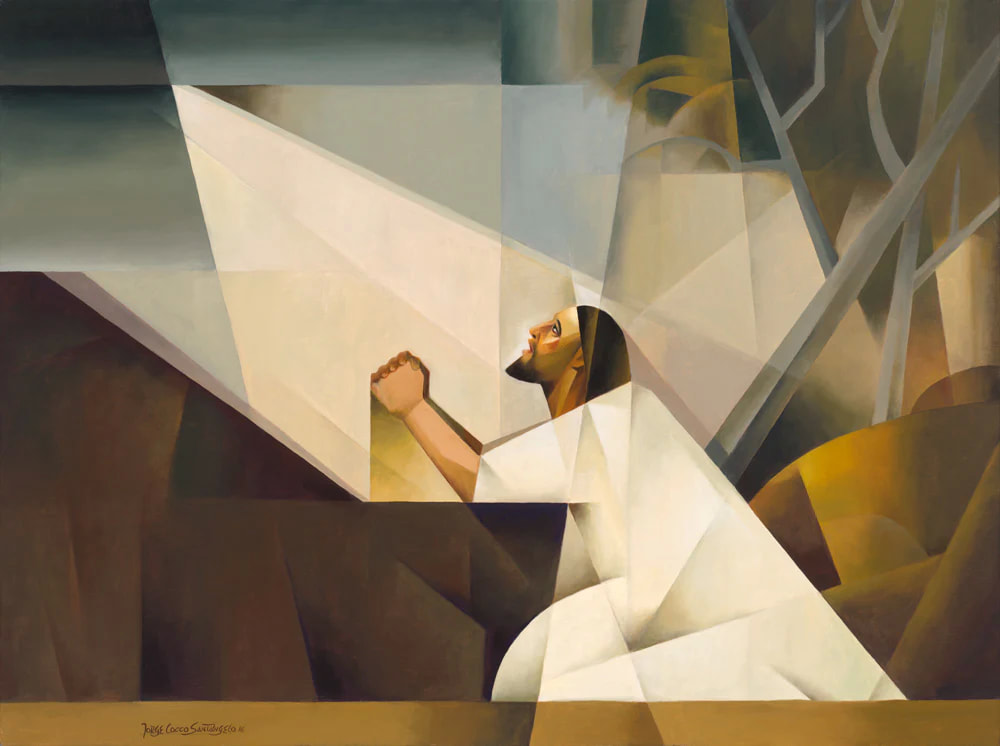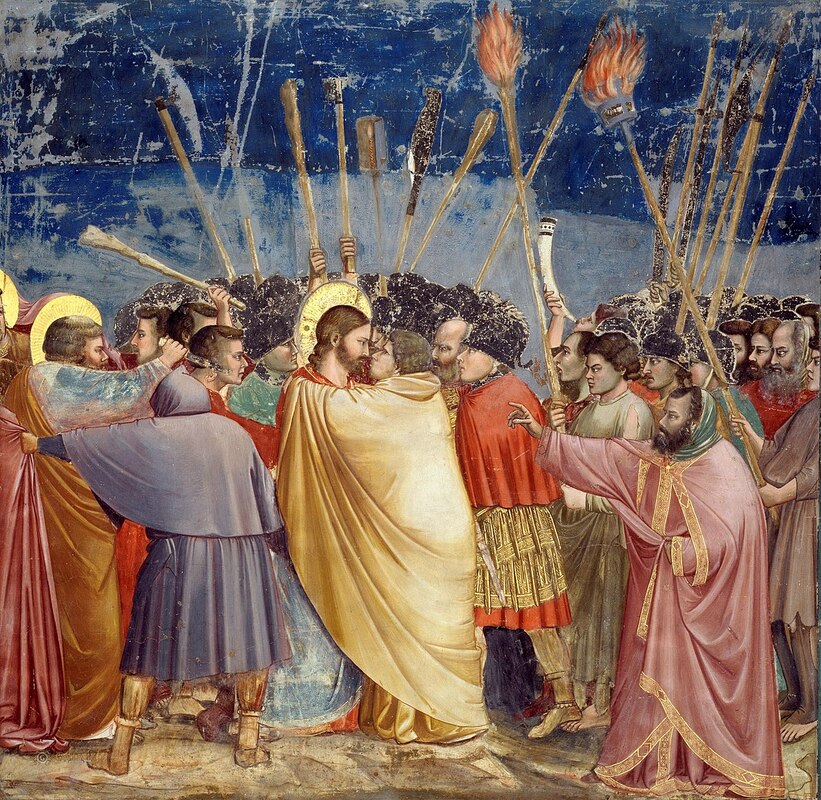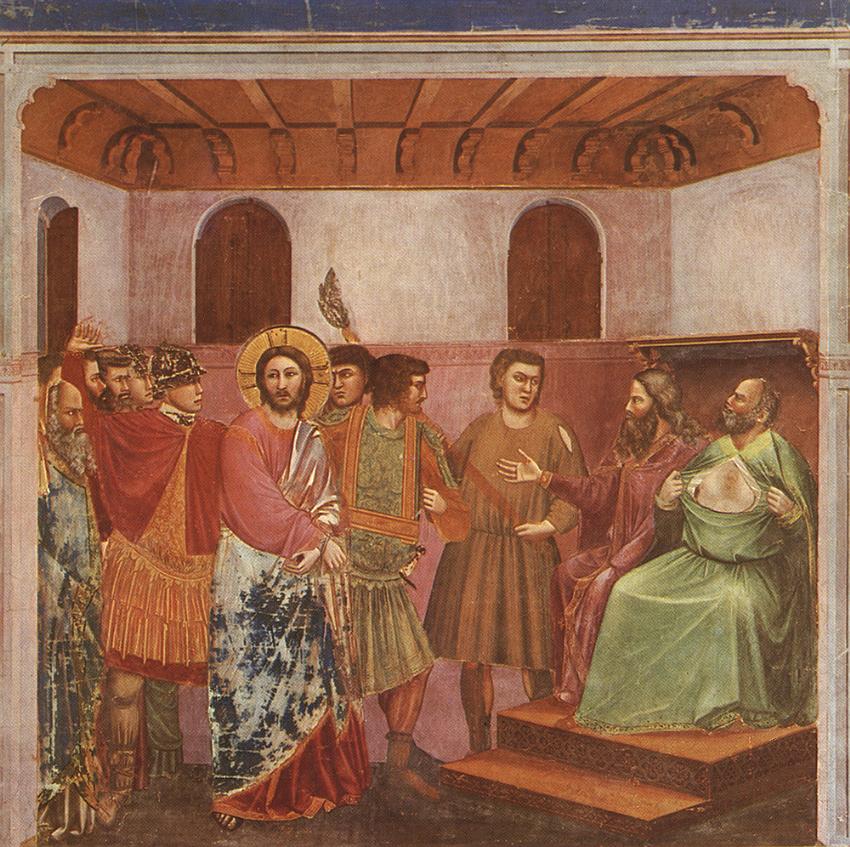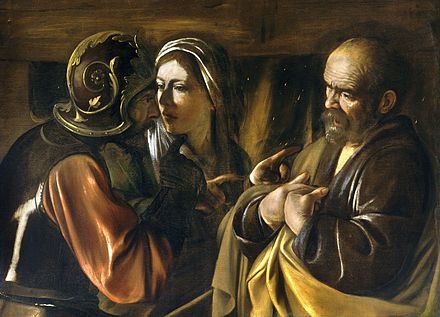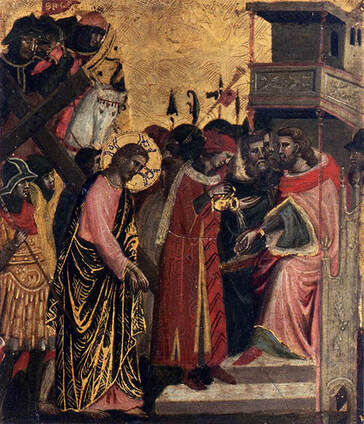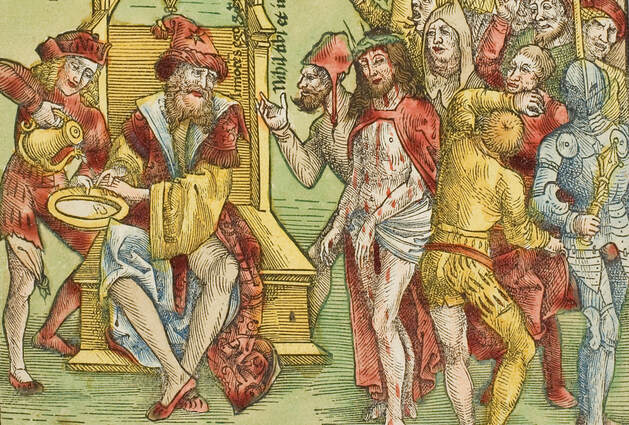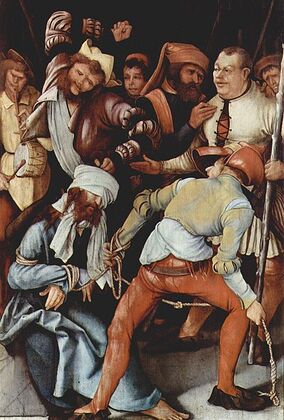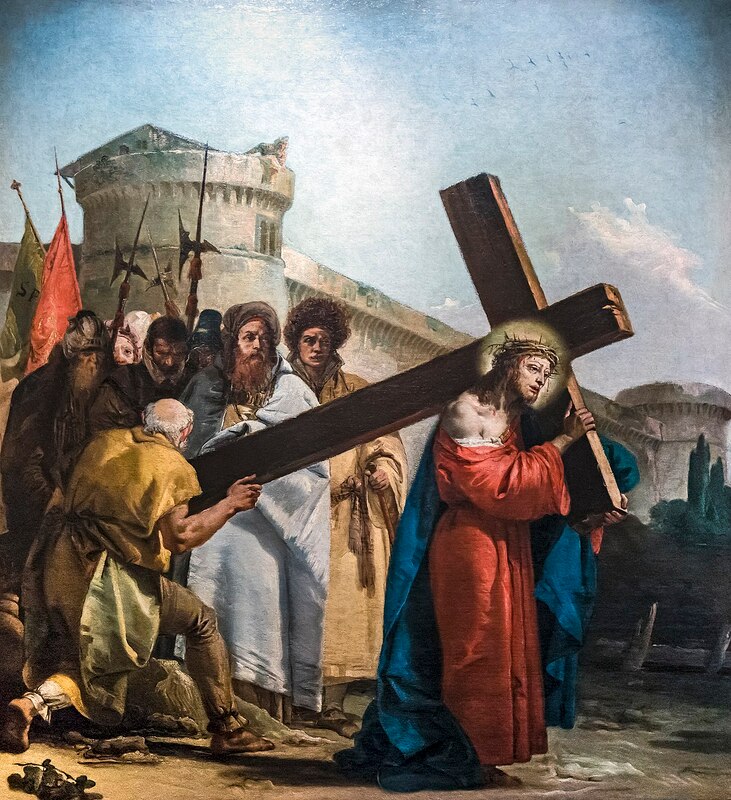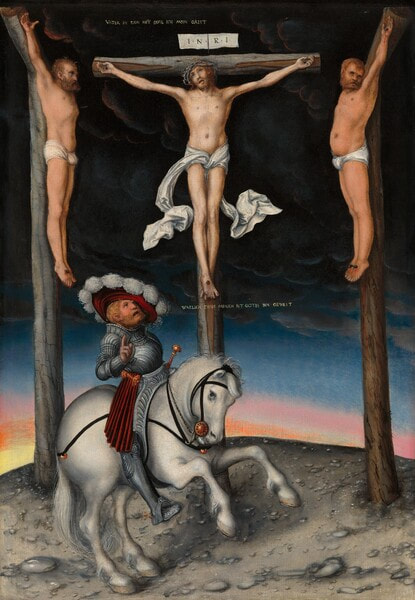They devoted themselves to the apostles’ teaching and fellowship, to the breaking of bread and the prayers. Awe came upon everyone because many wonders and signs were being done through the apostles. All who believed were together and had all things in common; they would sell their possessions and goods and distribute the proceeds[a] to all, as any had need. Day by day, as they spent much time together in the temple, they broke bread at home and ate their food with glad and generous hearts, praising God and having the goodwill of all the people. And day by day the Lord added to their number those who were being saved.
In this chapter of Acts, Luke paints the perfect portrait of what a church community ought to look like. One that shares meals and concerns with one another; reads scripture and prays together; and does the will of God and makes its content applicable to everyday life.
Somewhere in that space between then and today, the church abandoned this model, leaving it to the dusty pages of history. I mean, just randomly walk into any Catholic or Protestant church building on any given Sunday, and there’s a good chance it will look nothing like the one Luke describes here. Yes, they are reading scripture, praying and learning something, but what's missing is the awe. People are no longer being blown away by what the priest and pastors are doing. Instead most of them are just going through the motions. Now back in Luke's day, people were in awe not because of what they were hearing, but because of what they were seeing. Men and women, slave and free, Jew and gentile, rich and poor, all sharing fellowship, food, and faith together. There was no judgement, no shame, no rejection. Just Christ-like love, given and shared to all. No one was without. When Rev. Dawn and I decided to start Anamesa, we did so believing that despite our distance and the way we reach out to people, we could actually be like this Acts 2 church. A place where people from all different walks of life could share faith and fellowship no matter where we were, our when we watched. The early church had a word for this kind of living: koinonia, which in ancient Greek means “fellowship.” Or more specifically, “participation in a shared life.” This means everyone came together – with one heart and one soul – to love God, love others and serve both. The first followers of Christ participated in a shared life together - in good and bad times. They didn’t preach the gospel, they simply lived it. And God added to their numbers. (To think God had so much confidence in the first Apostles that God left everything Jesus began up to them to complete. Talk about God’s faith for us.) Jesus came and announced to the world that the Kingdom of Heaven is here. And his disciples believed him. Having been a witness to what he did, they took what Jesus said at face value, and lived a kingdom life; one that was centered on God’s will and not their own. This should be a lesson for us.
watch the message here
Like the great Buddhist monk, Thich Nhat Hanh, noted, this kingdom is not a place we go to when we die. Instead, it requires us to be "fully alive." He writes, “The practice is to touch life so deeply that the Kingdom of God becomes a reality. This is not a matter of devotion. It is a matter of practice.”
We proclaim the truth that Jesus spoke of by practicing it, over and over again. Leaving people in awe by what they witness through us - a proclamation of the gospel both with words and deeds. The church isn’t a static building, institution, or doctrine. It’s you and me. Us and them. We are the Body of Christ - a living, breathing, thriving organism. One that Jesus described as living seeds and living stones; yeast that is active and alive; salt that is full of flavor; light that awakens the world. He commissioned his followers to enter every space, not as a religion but as his living presence. As his followers, our only task is to love as he loved; heal as he healed; forgive as he forgave. It’s a daily practice of dying as he died; giving up one’s ego for the sake of others in order that we might fully live the way God intended us to live. Philosopher Burach Spinoza wrote, “I can’t tell you if there's anything after this life but I can give you a tip live as if this is your only chance to enjoy, to love, to exist.” I added this quote because at the end of the day, our validity doesn’t reside in the number of people sitting in our pews. It comes from the number of people we reach with our love. An authentic church is not a building any more than it is a liturgy, or specific traditions we hold onto. It’s an ethic, an economy, and a culture that welcomes friends and strangers alike. It lives by the words of Jesus who said, “If you love me, then you will love one another.” The shared life of koinonia is a life build upon love. Beginning with accepting God’s love for you and me, and then sharing that love with others. Love is the goal. Love is our purpose. It’s how people will see our faith and come to know who we are, both as individuals and as a Christ-centered community. We must enter Anamesa, that space between us and them, and sow the seeds of God’s love. When others divide, we must unite; creating communities of care. When others hoard, we must help; sharing the blessings we’ve received. When others are hateful and rude, we must be kind and respectful; loving fully and faithfully as if we are loving Christ himself. Believe it or not, this way of love is still a threat to those in power. It is still revolutionary. In the podcast Faith For Normal People, actor Rainn Wilson described what was happening in Acts 2 as one of the greatest revolutions of all time. He said, “For the first time in human history, there was a meeting of people from all different races, nations, classes and genders. [Sailors, rabbis, Roman soldiers, widows, carpenters, prostitutes] all gathered together to share a common purpose: to worship God and remember the legacy of Jesus.” Given our current, divisive political climate the church must remain revolutionary. It has to be willing to stand up and face power with weakness. Offer people mercy instead of retaliation. Grace instead of shame. Help instead of harm. The first church transformed communities, not by closing themselves off but by opening their hearts and hands to those the world had rejected, despised, or left for dead. More than a new religion, theirs was a revolutionary new community that faithfully followed the way of Christ who showed us that it is possible to live in accordance to the will of God. And God added to their numbers. The question for us then is: how can we reclaim and rekindle that spark that set the first church ablaze? The answer is simple. By spreading love. By creating joy. By waging peace. By serving the poor. By going into homes, and businesses, and social platforms imitating Christ; proclaiming the good news by being the incarnation of God’s love. If you ask me, there’s no better way to leave the world in awe. Works Cited Adapted from a sermonA Gathered People: What Are You Doing Here? May 21, 2017 (Accessed May 28, 2023. Byassee, Jason. "Living in the Word: Scared Sheep?" Sojourners, May 2017: 44. Cole, Neal. Organic Church: Growing Faith Where Life Happens. San Francisco: Jossey-Bass, 2005. Snyder, Howard. Called To Community. Edited by Charles E. Moore. Walden: Plough Publishing House, 2016. Rainn Wilson interview from Faith For Normal People, April 19, 2023.
0 Comments
If this were a film, perhaps it would be called “From Resurrection to Proclamation.” I imagine it to be a big, epic cinematic masterpiece that begins in a busy, crowded marketplace in first century Jerusalem.
The air is bustling with action. Tented stalls and street peddlers, loud voices vying for our attention. The camera follows a teenager pushing his way through the throngs of people. Then darts down a dark, narrow alleyway where the faint sound of someone shouting echoes off the walls. His heart pumps louder and louder as he nears the end of the dark alleyway. Pushing into the plaza a bright light fills the frame. We cut to a young, charismatic Peter addressing the crowd with intensity and purpose. And this is what he says.
This is Pentecost Peter who, along with roughly 120 other believers, has just been filled with the Holy Spirit as Jesus promised. The gathered crowd finds itself in an eclectic mix of excitement, joy, and bewilderment. As Scripture tells us, people talk in different languages but understand one another perfectly.
When some outsiders notice, they accuse this group of being drunk. Debunking their insult, Peter addresses the onlookers with his bold declaration – setting in place the foundation of the Christian Church and faith. This was not the first time the good news was proclaimed. Last week, a very resurrected Jesus instructed Mary Magdalene to go and tell the disciple about what she has seen. “The one that was dead is now alive. Where there was weeping there is now joy.” Mary’s testimony becomes the blueprint for Peter and the others to build upon. And build they do. Their faithful witness remains the mainstay of our mission and ministry today. Now, let’s go back to the movie where the camera pans over the crowd. It’s full of Jewish pilgrims from all over the place who have gathered together in this holy city. Some have never heard of this Jesus of Nazareth. They didn’t witness any his miracles or teachings. Others were there at his crucifixion. And perhaps heard rumors about his resurrection. But they didn’t understand what it all meant…at least not yet. There were also people present who doubted and questioned the whole thing. Some said his body was stolen. And others claimed Jesus was merely the spiritual presence of God and not a physical being. Peter, now filled with the Holy Spirit, addressed these doubters and cynics. He said, “Listen up. This Jesus whom you crucified, is more than just some prophet or a good man. He is the Messiah, the Holy One proclaimed by David and other prophets.” This Christological claim gets people’s attention. Most likely because Peter just made every Jew present culpable in Jesus’ death. Peter then professes, “We are witnesses to this truth that this Jesus we are talking about God has raised up from the dead. Whether you saw him with your own eyes, or you are now hearing the good news for the very first time, everyone here today is now a witness to this truth.” As Peter spoke, the Holy Spirit “pierced their hearts” with his words. Kathleen Bostrom writes, “For the multitudes gathered in that Pentecost crowd, it was like seeing a sunrise for the very first time – not just seeing the sunrise, but feeling the sun's warm, glorious beams break through the chill darkness of night.” Moving around the crowd, the camera stops on a single voice who shouts, “Brothers, tell us what to do.” Peter is quick to answer. “Hear with your heart. Change your life and return to God. Be baptized in the name of Jesus Christ. Let him be your Lord and receive the joy of Christ and his amazing grace.” The crowd surges in a loud, riotous roar. From this one impromptu sermon, we are told three thousand people were baptized that day. The power of testimony. From Peter’s public proclamation, the Church and her faith was established.
watch the message here
Now, in the movie, we follow the crowd from the city to the Jordan River where the sheer number of new believers seems to stop the flow of water.
With hearts aglow, these pilgrim people return to their homes in Egypt, Mesopotamia, Crete, Arabia, and all over the Roman empire, carrying the message of Christ with them to their communities. The opening credits roll over a montage of men and women, Jews and Gentiles, rich and poor, free and enslaved all having their heart awoken to the good news. The reason for this is simple. God’s redemptive love knows no boundary. It can’t be contained to a city or confined to a building. And most certainly cannot be kept in the hearts of the faithful either. Instead, the gospel is meant be shared as freely and as liberally as Jesus gave it. As we learned during Lent, Jesus took twelve ordinary people and created a community formed and fashioned for God’s kingdom. He taught the Twelve a way to live in perfect sync with God and others. A community were offenders are dealt forgiveness; hatred is greeted with kindness; and everyone’s needs are met. The Twelve, along with a few hundred extras, rise above their fears, faults, and foibles to become the next incarnation of God’s love. As the Body of Christ, we too are called to manifest God’s love with our hearts and hands, proclaiming what we know to be true – through word and deed - that Jesus is both Lord and Christ. Yet, this has become a stumbling block for us lately. The Christian church has become so divisive that it’s hard for us to proclaim the good news and not to sound hypocritical. One group believes this. The other the opposite. It’s funny how we air our disagreements in public, but not our faith. (And we wonder why less people are showing up.) What’s stopping you from speaking your faith, or living it out authentically in public? Is it the lack of words? Or the lack of faith? When I was a kid in school, it wasn’t uncommon for someone stand up in chapel, like Peter, and share their personal testimony of how they came to know Christ. But most of us weren’t comfortable enough to stand in front of their peers to read a book report muchless share something as intimate as a belief. That’s okay. As the great Meister Eckhart once said, “Go and preach the gospel, using words only when necessary.” Even Peter will eventually abandon the pulpit to go out into world, sharing the good news like Jesus did; by loving God, loving others, and serving both. This is how the first church lived out the gospel. Their way would go on to inspire others to do the same. St. Francis of Assisi who would abandon his family fortune to care for the poor. Mother Teresa who proclaimed the gospel by loving those the world had left for dead. Dr. King, who fought for equality and freedom for all of God’s children. Today we have saints like Fr. Greg Boyle, the founder of Homeboy Industries. By standing in God’s faithful and redemptive love, Boyle has pierced the hardest of hearts – transforming the lives of thousands of gang-members around Los Angeles. Then there are everyday folks like Kevin Crowell, who shows up every Monday morning to hand out bags of food at the North Hollywood Interfaith Food Pantry. And Julie Garcia, who makes Christ come alive in her nursing home by faithfully practicing little acts of kindness to the other residents. Like I always say, God uses ordinary people like you and me to be everyday saints. It only takes a flicker of faith for the Holy Spirit to do her thing. Just the same, it only takes the smallest acts of love to transform a person’s heart. In one of the last lessons, Jesus gave his disciples this simple rule to live by. He told them, “They will know you belong to me by the way you love one another.” Love is still the best way to proclaim Jesus as Lord and Christ. After the opening credits and montage of people having their lives transformed, the movie settles in a great room in a private home where many have gathered for a spectacular feast. We cut on a teary-eyed Roman soldier removing his sword from his sheath. He hands it to Peter and falls to his knees for mercy. Bending down to help the soldier up, Peter welcomes his adversary in a loving embrace. He shows this broken man, in the best way he knows how, what the resurrection was all about. “The one who was dead is now alive. Where there was weeping there is now joy.” In this sacred space, between mercy and grace, the church begins to take shape. Work Cited Bostrom, Kathleen. Feasting on the Word Year A, Vol 2. Louisville: Westminster John Knox, 2010.
Only, it just requires a willingness to stand in the space between the known and unknown, and hold the tension of mystery. With a little fleck of faith, the eyes of our heart can open wide enough to see what God is capable of doing – making all things new, bringing abundant life from suffering and death.
Years ago, when Kathleen and I were newly engaged, we went out to dinner to celebrate my birthday. When we returned home, I noticed there was someone stirring around in my apartment.
For most, this might be cause for alarm. But this was the Formosa Ponderosa, a small community of eclectic people who lived and shared life together. It wasn’t uncommon to find someone in your kitchen borrowing some pasta or grabbing a beer. What surprised me was how Kathleen and our neighbors were able to throw a surprise party for me without me knowing it. Everyone was there, except for my dear friend Matt. Which was odd because he and I had plans to make smoothies and play guitar that night. It was Lent, and I had given up drinking…so smoothies all around. Kathleen was also surprised that Matt wasn’t there because the two of them had spent a week planning the party. When Matt finally arrived with groceries in tow, it was clear that he was the most surprised of all, having completely forgotten about the plans he helped set in motion. Much like Matt, the disciples seemed a bit taken aback when they stood in the empty tomb where just a couple of days earlier, their best friend’s body had been laid to rest. They too had been part of the plan, but somehow forgot. You gotta ask yourself, how is that possible? I mean, Peter and John were the closest to Jesus. They spent the last three years sharing life next to him, and went everywhere with him. They had witnessed, time and time again, the mysterious ways of God firsthand. And just accepted stuff that didn’t make sense, because they saw it with their own eyes. So why would this empty tomb be any different? It’s not like Jesus didn’t give them plenty of clues. In fact, he told them point blank, "Here’s what’s going to happen. The Son of Man is going to be betrayed into the hands of men. They will kill him, and after three days he will rise." But like my buddy Matt, Mary, Peter, and John stood dumbfounded at the entrance of the tomb. I’m sure we wouldn’t be any different. Some of us might react like John did. When he entered the tomb, he “saw and believed” even though he didn’t understand. John had seen enough crazy things up to this point, including people being raised from the dead, so perhaps his faith was willing to allow the mystery to be had. Then there are those who are more like Peter, their faith is always questionable. As the text reveals, Peter isn’t so sure what to believe. In fact, he seems to have some more thinking to do because he and John return home. And then there is Mary who, like most of us, doesn’t seem to get it at all. At least, not yet. But unlike most of us, Mary’s lack of understanding doesn’t cause her to doubt or run away. Instead she remains at the empty tomb, weeping and believing she has lost Jesus a second time. And then, for a second time, God surprised Mary. But Mary stood weeping outside the tomb. As she wept, she bent over to look into the tomb, and she saw two angels in white sitting where the body of Jesus had been lying, one at the head and the other at the feet. They said to her, “Woman, why are you weeping?” She said to them, “They have taken away my Lord, and I do not know where they have laid him.” When she had said this, she turned around and saw Jesus standing there, but she did not know that it was Jesus. Jesus said to her, “Woman, why are you weeping? Whom are you looking for?” Supposing him to be the gardener, she said to him, “Sir, if you have carried him away, tell me where you have laid him, and I will take him away.” Jesus said to her, “Mary!” She turned and said to him in Hebrew, “Rabbouni!” (which means Teacher). Jesus said to her, “Do not touch me, because I have not yet ascended to the Father. But go to my brothers and say to them, ‘I am ascending to my Father and your Father, to my God and your God.’ ”Mary Magdalene went and announced to the disciples, “I have seen the Lord,” and she told them that he had said these things to her. - John 20:11-18
Again, she still doesn’t get it when she mistakes Jesus for the gardener. How can we blame her? It doesn’t make sense.
To quote Barbara Brown Taylor, “Once a human being goes into the ground, that is that. You do not wait around for the person to reappear so you can pick up where you left off- at least not this side of the grave. You say good-bye; pay your respects; and go on with your life as best you can.” Resurrection doesn’t make sense. And yet it does. Although many have tried, there is nothing we can do to defeat death. But I believe God can. I can’t prove how, but I have faith in God’s faithfulness even though I don’t understand completely what that means. But what I do understand, and science seems to back me on this, is that if God is able to resurrect a galaxy of dead stars into a new creation of living planets, then God can make life out of death. As Rowen Williams writes, “There is no situation in the universe in the face of which God is at a loss.” Thus, Easter teaches us one very important thing. God always wins. Nothing can defeat God, not even death. God is always victorious. Our sin, our stupidity, our selfishness is no match for God’s love for us. And so we gather as a church, as the new, living Body of Christ to proclaim God’s glory revealed to us through Jesus, The Christ. “The one that was dead is now alive. Where there was weeping there is now joy.” This doesn’t make sense to Mary, like it didn’t to Peter and John. The eyes of her heart are still closed with pain and suffering. She cannot see that the man she meets in the garden is the One she longs for. Then God surprises her a third time; flipping on the light so Mary can truly see the mystery of life that has always been there. Jesus says her name, and everything about Mary changes; her deepest despair turns to the greatest joy. “For death has more than met its match. It has been defeated.” This announcement that Jesus is alive changes everything; it changes us. There is now hope instead of hopelessness; light instead of darkness; joy instead of sadness. No wonder Mary’s first instinct is to grab hold of Jesus and never let go. Yet, Jesus stopped her, telling her not to hold on but instead to let go. It’s as if Jesus is telling Mary, “There’s more to be done. Let go of me and run to tell the others what you know.” By her obedience to Jesus’ request, “Mary becomes the apostle to the apostles. Whether or not Mary understood this perfectly didn’t matter to her. She believed in Jesus and faithfully did what he asked of her. Being a faithful witness to this new life is the task of the church. It’s the whole point of claiming the name Christian. Following Jesus literally means following his way of love and service. This is how Jesus proclaimed the good news of God’s redemptive love. And it’s how we must too. As Mary shows us, Easter doesn’t end at the tomb. It begins there. And it has continued every day since, all the way up to today. There’s more to the story because there’s more that needs to be done. More people to feed. More wounds to heal. More peace to bring. More wrongs to right. More sins to be forgiven. More people who need to know and feel and experience God’s love first hand through us. Jesus sends Mary out to tell others. And the ones she tells will go and tell others. This pattern of faithful witnesses will continue throughout Anamesa until God’s will is done on earth as it is in heaven. You don’t have to fully understand the Easter story to live it out. Just allow Jesus to come to life through you. Go and be little Christs, allowing God’s love to flow in and out of you.
Watch our Easter Service here
Six years ago, on Easter Sunday, a church was planted right here in our backyard. We made it our mission to love God, love others, and serve both.
We had no idea what we were doing or what we were up against. We just believed that God was calling us together for a reason. Through trial and error, I learned it’s not always easy to see or understand God’s wonderful surprises when struggling to keep our heads above water. Just the same, I am sure it wasn’t easy to see God’s divine hand at work on a blood-stained cross or an empty tomb. But there it was, right before their eyes and no one understood. Yet eventually they would all believe. And each one would go and manifest God’s love throughout the world. Richard Rohr reminds us that, “Resurrection is not a miracle to be proven; it is a manifestation of the wholeness that we are all meant to experience…” Throughout all of creation we see how resurrection was not a one-time occurrence. It wasn’t some band-aid to fix something we broke. Resurrection has been a part of God’s blueprint since the beginning. Like Jesus said, “Unless a kernel of wheat falls to the ground and dies, it remains only a single seed. But if it dies, it produces many seeds” (John 12:24 ). Resurrection is the cycle of life; the completion of the incarnation; the birth of something new. Easter is not the end of the story. It’s the beginning of an amazing new life that we get to live out every day. God is always throwing a surprise party for us. But who will show up? Who will walk with us into Anamesa – that space where God comes to meet us in the most unexpected ways. Jesus is calling you by name. And he is sending you out to proclaim the good news. The tomb is empty. Christ is alive. Death has lost its power over us. May we live faithfully to this truth, believing even if we don’t totally understand. Work Cited Rohr, Richard. Immortal Diamond. (Jossey-Bass: 2013) pp.83-90. Swenson, Warren. Responding. April 2, 2023 (Accessed on April 5, 2023). Taylor, Barbara Brown. Home By Another Way. (Crowley: 1999) Williams, Rowen. Easter Message 2014. (Accessed on April 5, 2023).
As many of you might know first hand, whenever there is great love, there will be suffering. We’ve been learning through this Lenten pilgrimage, sometimes it’s in our suffering, we lean on God more, drawing ourselves closer to where the Holy Spirit is leading our hearts. This morning, we will take the uneasy path, walking with the prescribed lectionary text. I did not prepare any words per se because this story is a sermon all on its own. I would like to invite you to put yourself in this story. Because this story is about us, and our frail human nature. You can play a big role or just be a spectator as the story moves from a small room to a fragrant garden, to a private home and royal palace before we walk a dirt pathway to the cross. The very place our Lenten pilgrimage has been taking us.
And they became greatly distressed and began to say to him one after another, "Surely not I, Lord?" He answered, "The one who has dipped his hand into the bowl with me will betray me. The Son of Man goes as it is written of him, but woe to that one by whom the Son of Man is betrayed! It would have been better for that one not to have been born." Judas, who betrayed him, said, "Surely not I, Rabbi?" He replied, "You have said so." PAUSE While they were eating, Jesus took a loaf of bread, and after blessing it he broke it, gave it to the disciples, and said, "Take, eat; this is my body." Then he took a cup, and after giving thanks he gave it to them, saying, "Drink from it, all of you; for this is my blood of the covenant, which is poured out for many for the forgiveness of sins. I tell you, I will never again drink of this fruit of the vine until that day when I drink it new with you in my Father's kingdom." When they had sung the hymn, they went out to the Mount of Olives. Then Jesus said to them, "You will all become deserters because of me this night; for it is written, 'I will strike the shepherd, and the sheep of the flock will be scattered.' But after I am raised up, I will go ahead of you to Galilee." Peter said to him, "Though all become deserters because of you, I will never desert you." Jesus said to him, "Truly I tell you, this very night, before the cock crows, you will deny me three times." PAUSE Then Jesus went with them to a place called Gethsemane; and he said to his disciples, "Sit here while I go over there and pray." He took with him Peter and the two sons of Zebedee, and began to be grieved and agitated. Then he said to them, "I am deeply grieved, even to death; remain here, and stay awake with me." And going a little farther, he threw himself on the ground and prayed, "My Father, if it is possible, let this cup pass from me; yet not what I want but what you want." Then he came to the disciples and found them sleeping; and he said to Peter, "So, could you not stay awake with me one hour? Stay awake and pray that you may not come into the time of trial; the spirit indeed is willing, but the flesh is weak." Again he went away for the second time and prayed, "My Father, if this cannot pass unless I drink it, your will be done." Again he came and found them sleeping, for their eyes were heavy. So leaving them again, he went away and prayed for the third time, saying the same words. Then he came to the disciples and said to them, "Are you still sleeping and taking your rest? See, the hour is at hand, and the Son of Man is betrayed into the hands of sinners. Get up, let us be going. See, my betrayer is at hand." PAUSE
The high priest stood up and said, "Have you no answer? What is it that they testify against you?" But Jesus was silent. Then the high priest said to him, "I put you under oath before the living God, tell us if you are the Messiah, the Son of God." Jesus said to him, "You have said so. But I tell you, from now on you will see the Son of Man seated at the right hand of Power and coming on the clouds of heaven." PAUSE
After a little while the bystanders came up and said to Peter, "Certainly you are also one of them, for your accent betrays you." Then he began to curse, and he swore an oath, "I do not know the man!" At that moment the cock crowed. Peter remembered what Jesus had said: "Before the cock crows, you will deny me three times." And he went out and wept bitterly. PAUSE
Now at the festival the governor was accustomed to release a prisoner for the crowd, anyone whom they wanted. At that time they had a notorious prisoner, called Jesus Barabbas. So after they had gathered, Pilate said to them, "Whom do you want me to release for you, Jesus Barabbas or Jesus who is called the Messiah?" For he realized that it was out of jealousy that they had handed him over. While he was sitting on the judgment seat, his wife sent word to him, "Have nothing to do with that innocent man, for today I have suffered a great deal because of a dream about him." Now the chief priests and the elders persuaded the crowds to ask for Barabbas and to have Jesus killed. The governor again said to them, "Which of the two do you want me to release for you?" And they said, "Barabbas." Pilate said to them, "Then what should I do with Jesus who is called the Messiah?" All of them said, "Let him be crucified!" So when Pilate saw that he could do nothing, but rather that a riot was beginning, he took some water and washed his hands before the crowd, saying, "I am innocent of this man's blood; see to it yourselves." PAUSE
|
Ian MacdonaldAn ex-copywriter turned punk rock pastor and peacemaker who dedicates his life to making the world a better place for all humanity. "that they all might be one" ~John 17:21“Prius vita quam doctrina.”
~ St. Thomas Aquinas (1225–1274) * “Life is more important than doctrine.”
Archives
June 2024
|
